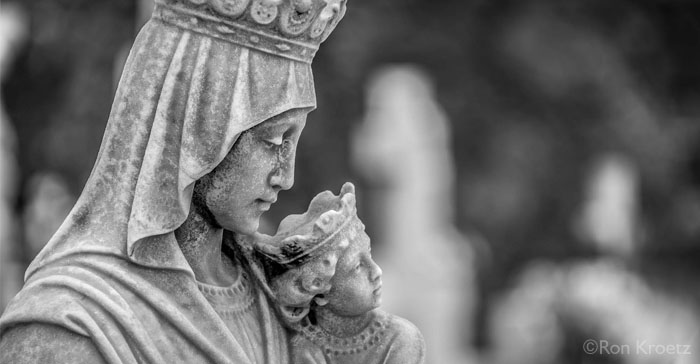Ever since the famous Joseph Cardinal Ratzinger memo was issued in 2003, debates have raged among well-meaning Catholics regarding precisely what the cardinal (now Pope Benedict XVI) meant by "proportionate reasons". In case you missed the memo, here is what the final paragraph said:
A Catholic would be guilty of formal cooperation in evil, and so unworthy to present himself for Holy Communion, if he were to deliberately vote for a candidate precisely because of the candidate's permissive stand on abortion and/or euthanasia. When a Catholic does not share a candidate's stand in favour of abortion and/or euthanasia, but votes for that candidate for other reasons, it is considered remote material cooperation, which can be permitted in the presence of proportionate reasons.
The whole question of voting is a complicated one for many Catholics, particularly in recent times. So I was quite gratified to read a recent statement by Archbishop Charles Chaput of Denver, which, in my humble opinion as a lay Catholic, clarified precisely what the term "proportionate reasons" means:
What is a "proportionate" reason when it comes to abortion? It's the kind of reason we will be able to explain, with a clean heart, to the victims of abortion when we meet them face to face in the next life – which we most certainly will. If we're confident that these victims will accept our motives as something more than an alibi, then we can proceed.
These words have profound consequences for those who are searching for a valid reason to cast a vote for someone who has, in all likelihood, not only favored the direct killing of the innocent but also worked hard to protect the so-called "right to abortion" in his or her political activities. We all know that such people exist and have witnessed some of the most egregious offenders in Congress, for example, who claim to be Catholic while continuing to support abortion. You and I know these people are sadly misled, and yet we know people who disagree and would support such pro-abortion people in a heartbeat.
But I wonder what that scene described by Archbishop Chaput would look like. Let's close our eyes for a moment and think about it. Can you imagine standing before the chorus of millions of preborn babies who are with God in eternity because their lives were cut short by abortion, and saying to them:
I am sure you can understand that while I was personally opposed to abortion on earth, I never wanted to impose my beliefs on anyone. I had no problem supporting powerful people who worked very hard to make sure that people like you could continue to be killed, if that is what their mothers wanted. Abortion should be legal for those people, and so I voted for those who agreed.
Maybe the scene would be a bit different from that or the argument more nuanced, but the bottom line would be the same. And if that is so, I cannot imagine how anybody could make such a statement, with a straight face, to the millions of aborted children, can you?
Catholic apologist Jimmy Akin looked at this question as well, and when he wrote about it, he asked, "What kind of reason would be needed to vote for a pro-abort candidate for president? Something unimaginably huge."
I don't expect that this debate, which is really centered on the "lesser of two evils" argument, will disappear any time soon, but I do think that Archbishop Chaput has given us a scenario that we can imagine in our mind's eye and get our thoughts around as we grapple with this situation prior to casting a vote this November.
I further believe with all my heart that until you and I have convinced a majority of our fellow Americans that the act of abortion is nothing less than an act of murder each and every time it is committed, the debates will only foster further apathy and confusion, and will achieve few substantive results.
So let's put our thinking caps on and really concentrate on those children who are now no longer with us. Imagine them gathered all around us, singing and praising God.
As we stand there listening to them, see if you can imagine one reason to excuse abortion even in a case like rape, incest or life of the mother.
Hold that thought and consider what comes next when you are asked, as you, me or anybody else surely would be,
"Why did you turn away from me when you had the chance to teach others the reasons why killing me was wrong?"
